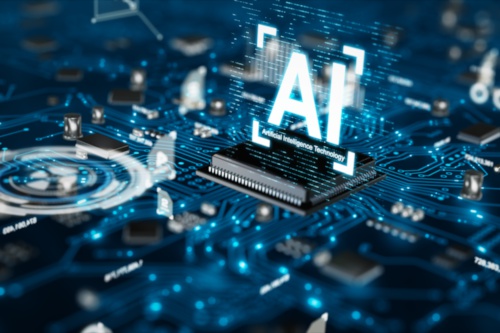Who Owns the IP to AI Created Works?
From Ada Lovelace to Alan Turing, the UK has long been a trailblazer in the development and application of artificial intelligence (AI). Nowadays, people interact with AI on a daily basis. For example, AI systems decide what people see on social media, protect people from banking fraud and even diagnose illnesses.
It is likely that your business already harnesses the benefits of AI and machine learning in various ways, such as to automate processes or forecasting performance. As the use of AI continues to evolve, the government has introduced the National AI Strategy to prepare for the next 10 years by:
- Investing and planning for the long term needs of the ‘AI ecosystem’
- Supporting our transition to an AI-enabled economy
- Working on the governance of AI technologies to encourage innovation, investment and protect our fundamental values
For businesses, whether you are a start-up, SME or large corporate, the government’s goal is to increase access to the people, knowledge and infrastructure you need to lead ‘transformational change’.
Part of this leap into the future requires us to consider whether the legal framework dealing with AI and AI created works is fit for purpose.
One such challenge concerns the ownership of works created by autonomous AI systems and whether intellectual property (IP) and copyright law is applicable or even appropriate to govern this area.
AI and intellectual property law
Intellectual property law rewards creativity and innovation; it supports business growth and protects commercial assets. The law has always been developed to keep up with advancements in media and technology, and now AI is posing more questions, including:
- If an AI system (including one which is itself protected by IP law) autonomously produces a creative work, who owns the IP rights to that work?
- If an AI system reproduces an existing work or uses existing works or data to produce its own creative works (such as the Next Rembrandt project, which uses Rembrandt’s works to create new paintings in the artist’s style), how should IP law apply?
- If an AI system reproduces an existing work or uses works or data in breach of someone else’s IP rights, who is legally responsible?
Who owns the copyright to AI created works?
AI systems can produce all sorts of creative works, from artwork to music. In many cases, there is human creativity behind the work, for which AI is simply a tool. At the other end of the scale, the human’s role may be limited to training and operating the AI.
Under traditional IP law, the person who creates the work (or their employer) will be the owner. In other countries, if a human creator cannot be identified, no copyright will exist. This is not the case in the UK. The Copyright, Designs and Patents Act 1988 protects computer-generated works. The author is the person ‘by whom the arrangements necessary for the creation of the work are undertaken’.
However, since 1998, the law has evolved and introduced uncertainty around ‘originality’. Currently, original works must be ‘the author’s own intellectual creation’. How this concept applies to AI created works is unclear, and some believe a separate definition is needed. The recent case of Thaler v Comptroller-General also raised the question of whether an AI system (DABUS) could be named as the inventor of a patent.
Who is liable for an AI breach of copyright?
Copyright infringement occurs when someone uses a substantial part of a copyright work without the owner’s permission. AI may infringe copyright simply by storing copyright data. It can also infringe copyright by reproducing copyright works. There are some exceptions to this, for example, data mining can be done for non-commercial gain.
If such an infringement occurs, the copyright owner can take legal action. But an AI system is not a legal entity that can be sued, so who is liable? Usually, it will be the person or business who is responsible for training the AI or operating the AI.
Some argue that restricting the use of copyright protected works limits the innovation of AI and that developers should be enabled to use copyright works more easily. Others think that there is an opportunity for licensing models to evolve to allow developers to license copyright works rather than withdrawing copyright protection from human creators.
Reforming IP law for an AI economy
In late 2020, the government published a call for views on AI and IP. In March 2021, it published its response and next steps, which integrates with the aims of the National AI Strategy. These steps are to:
- Consult on how far copyright and patents should protect AI-generated creative works and inventions
- Consult on ways to make it simpler to use copyright protected material in AI development
- Run an economic study on the role the IP legal framework plays in incentivising investment in AI
The consultation will be launched before the end of 2021.
Speak to our Commercial team for expert advice about AI and intellectual property
To discuss AI, intellectual property and copyright law or any other commercial matter, please get in touch with our experienced Commercial team.
Please note the contents of this article are given for information only and must not be relied upon. Legal advice should always be sought in relation to specific circumstances.

